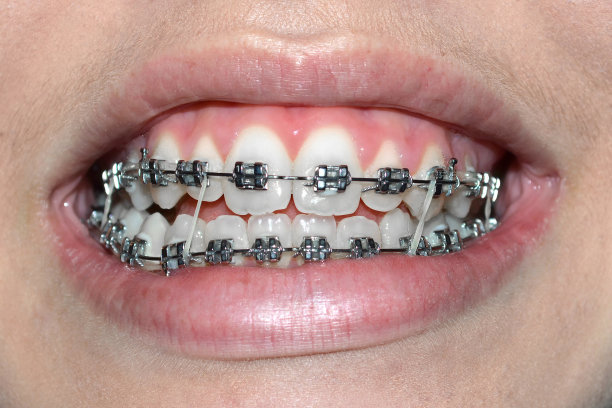Summary: Dental implants are a remarkable solution for restoring missing teeth, offering both functional and aesthetic benefits. However, to ensure optimal success and healing, several essential guidelines and precautions must be considered prior to the procedure. This article outlines four critical aspects: preoperative assessment and planning, oral hygiene and care, understanding the recovery process, and selecting a qualified dental professional. Each of these elements plays a vital role in achieving successful outcomes and minimizing potential complications. By adhering to these guidelines, patients can enhance their chances for a seamless dental implant experience.
1. Preoperative Assessment and Planning

Before proceeding with dental implantation, a comprehensive preoperative assessment is crucial. This evaluation typically involves a thorough medical history review and a complete dental examination. Understanding any existing health conditions and medications is essential since they may influence the healing process and overall success of the implant.
Additionally, imaging studies such as X-rays or 3D scans provide critical insights into the bone structure and density, helping the dental professional devise an effective treatment plan. This stage will help in determining whether bone grafting or other preparatory procedures are necessary prior to the actual implantation.
Finally, patients should have an open discussion with their dentist about their expectations and inquiries. Addressing concerns at this stage can alleviate anxiety and pave the way for a more relaxed experience during surgery.
2. Importance of Oral Hygiene and Care
Maintaining excellent oral hygiene before the implant procedure is one of the most significant factors influencing healing and success. A clean mouth reduces the risk of infection, which is crucial as infections can lead to implant failure. Patients should follow their dentist’s recommendations regarding the best oral care practices in the weeks leading up to surgery.
Incorporating antimicrobial mouthwash and flossing can be beneficial in removing plaque and bacteria. Moreover, scheduling a professional cleaning before the procedure helps ensure that the mouth is in optimal condition for surgery. Patients should also refrain from smoking, as it can hinder healing and decrease the likelihood of a successful outcome.
After the procedure, continued emphasis on oral hygiene is vital. Following the dentists post-operative instructions regarding diet and care significantly enhances the healing process and helps secure the implant in place.
3. Understanding the Recovery Process
Patients should be well-informed about what to expect during the recovery period following dental implantation. Initial healing usually involves discomfort, swelling, and bleeding, but these symptoms can often be managed with prescribed medications. Understanding these aspects prepares patients for the changes they may experience and helps them manage expectations.
Moreover, patients need to adhere to specific dietary restrictions during the first few days post-surgery. Soft foods and avoiding hard or chewy items will protect the surgical site and promote better healing. Staying hydrated is also essential; however, patients should be cautious not to use straws within the first week to avoid dislodging the blood clot.
Regular follow-ups with the dental professional are crucial in identifying any complications early on. Patients should not hesitate to reach out if they experience unusual symptoms such as severe pain or prolonged bleeding.
4. Selecting a Qualified Dental Professional
The choice of dental professional can significantly impact the success of dental implantation. Patients should seek professionals with extensive experience and credentials specializing in implant procedures. Researching their background, reading reviews, and asking for referrals helps in identifying a suitable dentist.
A reputable dental professional will take the time to explain the procedure in detail, address concerns, and develop a comprehensive treatment plan tailored to the patient’s unique needs. During the consultation, it’s also crucial for patients to evaluate the office environment, staff interaction, and available technology.
Lastly, discussing the financial aspects and insurance coverage is important to avoid hidden costs that could arise. Understanding the investment makes it easier for patients to make informed decisions regarding their dental health.
Summary:
In conclusion, achieving optimal success and healing from dental implants requires careful consideration of multiple factors. From thorough preoperative assessments to rigorous post-operative oral care, each step is vital. By following the guidelines outlined in this article, patients can significantly enhance their experiences and outcomes.
This article is compiled by Vickong Dental and the content is for reference only.
Vickong Dental
Vickong Dental is a large medical group established in Hong Kong in 2008 by professors from well-known medical universities in Guangdong and Hong Kong, as well as medical doctors from key national '985' universities (including Master's supervisors and senior professors). The chain of branches brings together expert dentists with PhDs and Master's degrees from Hong Kong and Mainland China, committed to providing high-quality dental treatment.
"Vickong Dental Practices the University Motto of 'Healing and Serving Society,' with a Stable Operation for Sixteen Years. It Has Been honored with Hong Kong Enterprise Leaders's Choice,' and is a Global Trusted Implant Center for the Nobel Implant System. Recommended by Hong Kong Metro Broadcast and Guangdong Television, it Serves Customers from Over Thirty Countries and Regions, Gaining the Trust and Favor of Citizens from the Guangdong-Hong Kong-Macau Greater Bay Area and Surrounding Cities.

Thousands of customers' unanimous praise
The most recognized and highly recommended dental service by customers in the Guangdong-Hong Kong-Macau Greater Bay Area
We Ensure You Receive Detailed Care and Attention Here
Hong Kong standards, Shenzhen prices, Your Trusted English-speaking dentists

Vickong Dental Medical-Grade Instrument Disinfection Process
Vickong Dental Medical-Grade Instrument Disinfection Process

Vickong Dental Chain: A Warm and Comfortable Environment for Treatment






Appointment Hours

Q&A
Why choose Vickong Dental?
Vickong Dental practices the university motto 「Medicine to Benefit Society」, with each branch bringing together highly qualified dentists with doctoral and master’s degrees from Hong Kong and the Mainland, and has maintained seventeen years of steady operation。Recipient of 「2024 Hong Kong Enterprise Leaders Brand」, 「2025 Hong Kong Enterprise Leaders Brand」, a Nobel Biocare Global Trusted Implant Center, and a brand recommended by Metro Radio Hong Kong and Guangdong TV。
To date, we have served customers from more than thirty countries and regions,earning exceptionally high word-of-mouth recognition and trusted recommendations from residents across the Guangdong-Hong Kong-Macao Greater Bay Area and surrounding cities
We have eight major branches in Zhuhai、Shenzhen,and a consultation and service assurance center in Hong Kong,so you can book a free consultation at any time for any questions,which is very reassuring.
If I do not accept the quotation after the CT scan, will I be charged??
No! As long as the actual treatment has not started, you will not be charged any fees.
Will there be any additional charges during the treatment process?
No, there won’t be any additional charges. Before treatment begins, we will clearly explain the treatment plan and its corresponding fees. Only after the patient agrees and signs the consent form will we proceed with the dental service.
Can I pay in Hong Kong dollars?
Yes. Vickong Dental accepts payment in Hong Kong dollars. The amount will be converted based on the exchange rate of the day, and the applicable rate will be clearly communicated to you in advance.
Can I reschedule my appointment at any time?
Yes. Please contact us via **WeChat** or **WhatsApp** as early as possible, providing your original appointment time and details, along with your preferred new date and time slot for rescheduling.













